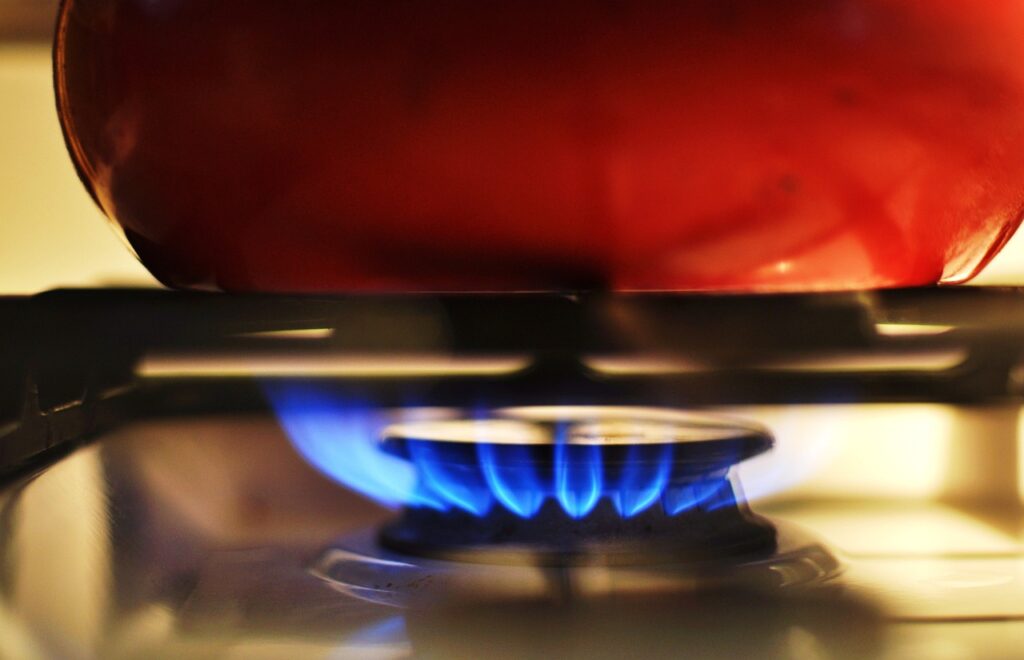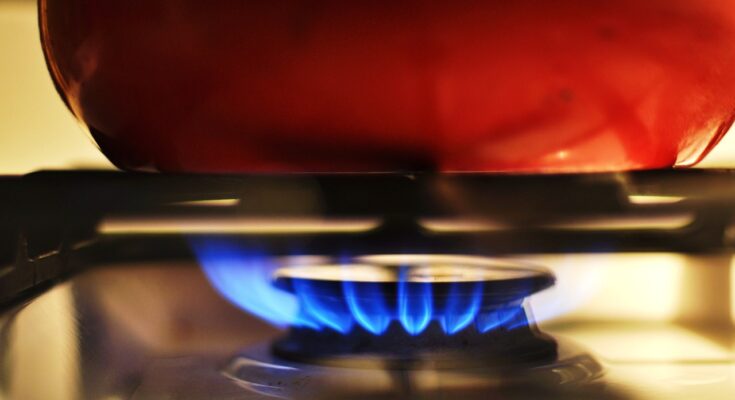Do you ever feel like your electricity bill is sucking the life out of you? Are you tired of constantly paying high energy bills every month? Well, fear not, because we have the ultimate guide to home appliances for energy saving.
By following these tips, you can significantly reduce your energy consumption and save money in the long run.
Firstly, it’s important to understand just how much energy your appliances are consuming. You might be surprised to find out that some appliances use a lot more energy than others, even when they’re turned off.
But don’t worry, we’ll guide you through choosing energy-efficient appliances that will not only save you money but also benefit the environment. By maintaining your appliances and using them efficiently in your daily life, you can make a huge difference in your energy consumption and ultimately contribute to a greener world.
So, let’s get started on our journey to energy savings!
Understanding Energy Consumption in Appliances
Let’s dive into how our everyday gadgets use up power and what we can do to reduce their energy consumption. Understanding energy consumption in appliances is key to reducing your energy bills and minimizing your environmental impact.
Every appliance uses energy in a different way, and some are more energy-efficient than others. When shopping for appliances, always look for the Energy Star label. This label indicates that the appliance has been certified by the US Environmental Protection Agency as energy-efficient.
Energy-saving benefits include lower energy bills, reduced carbon emissions, and a smaller environmental footprint. Additionally, be mindful of how you use your appliances. Unplugging devices when they’re not in use, using power strips, and adjusting your thermostat can all help conserve energy and reduce your environmental impact.
Choosing Energy-Efficient Appliances
You want to choose appliances that’ll help lower your electricity bill and reduce your carbon footprint. When it comes to choosing energy-efficient appliances, it’s important to consider the initial cost versus long-term savings.
While energy-efficient models may cost more upfront, they can save you money in the long run by reducing your monthly electricity bill.
When comparing costs, it’s important to look beyond the price tag and consider the appliance’s energy efficiency. Look for appliances that are Energy Star certified, as they meet strict energy efficiency guidelines set by the U.S. Environmental Protection Agency.
Additionally, consider investing in appliances with features such as programmable settings and automatic shut-off, which can help reduce energy waste.
Brands to consider for energy-efficient appliances include LG, Samsung, Whirlpool, and Bosch, all of which offer a range of energy-efficient options for various types of appliances.
Maintaining Appliances for Optimal Performance

In order to keep your gadgets in tip-top shape, it’s essential to perform regular maintenance and inspections to prevent malfunctions and costly repairs.
One of the most important ways to maintain your appliances is through proper cleaning techniques. This involves wiping down surfaces, removing any debris or dirt, and checking for any signs of wear and tear. It’s also crucial to clean and replace filters, such as those found in air purifiers or HVAC systems, to ensure optimal performance and energy efficiency.
If you do encounter any issues with your appliances, it’s important to seek out repair services as soon as possible. Ignoring small problems can lead to bigger, more costly issues down the line.
Look for certified repair technicians or contact the manufacturer for guidance on where to find reliable repair services.
Remember, properly maintaining your appliances not only helps save energy and money but also extends the life of your gadgets, making them a worthwhile investment for your home.
Using Appliances Efficiently in Daily Life
Get the most out of your gadgets by using them efficiently in your daily routine, making your life easier and more enjoyable. With the rise of Smart Home technology, it’s easier than ever to control your appliances remotely and optimize their energy usage.
For example, you can use a smart thermostat to adjust the temperature in your home based on your schedule and preferences, reducing energy waste and costs. Likewise, smart lighting systems can automatically turn off lights when you leave a room or dim them according to your needs, further reducing your energy usage.
In addition to Smart Home technology, you can also incorporate ‘Green’ home design principles into your daily routine to save energy. For instance, you can maximize natural light by opening curtains during the day or using light-colored walls and furniture to reflect light. You can also reduce your energy usage by running appliances during off-peak hours, such as at night, when energy rates are typically lower.
By making small changes to your daily habits and incorporating Smart Home technology and Green design principles, you can save money on your energy bills and reduce your carbon footprint.
Additional Tips for Energy Savings in the Home
It’s amazing how much money you can keep in your wallet and how much waste you can keep out of landfills by simply being mindful of the resources you use and the impact they have on the environment.
To make energy saving habits a part of your daily routine, start by unplugging appliances when they’re not in use. Even when they’re turned off, appliances can still draw energy and contribute to your energy bill. You can also invest in power strips with timers to make it easier to turn off multiple appliances at once.
In addition to these habits, consider exploring renewable energy options for your home. Solar panels, for example, can help you generate your own electricity and reduce your reliance on traditional energy sources. While the initial cost of installation may seem high, the long-term benefits can make it a worthwhile investment.
With these tips in mind, you can make a significant impact on your energy consumption and contribute to a more sustainable future.
Frequently Asked Questions
How can I determine the energy consumption of my current appliances?
To determine the energy consumption of your current appliances, there are a few methods you can use. One way is to check the label on the appliance for the wattage or kilowatt-hour usage.
Another method is to use an energy monitor to measure the actual energy usage over a period of time.
Once you have determined the energy consumption of your appliances, you can compare them to energy-efficient models to see the potential savings.
Energy-efficient appliances use less energy to operate, which can result in lower utility bills and a smaller carbon footprint.
It may be worth investing in energy-efficient appliances, especially if your current ones are outdated and have high energy consumption.
Are there any government incentives or rebates available for purchasing energy-efficient appliances?
Looking to buy energy-efficient appliances? You’ll be happy to know that there are government incentives and rebates available that can help you save money.
Tax credits can be used to offset the cost of buying new appliances, while financial assistance can help with the installation of energy-efficient systems.
So, before you go out and buy new appliances, make sure to check with your local government to see what programs are available.
With a little research, you can save a lot of money and reduce your carbon footprint at the same time.
Can I use smart home technology to monitor and control my appliance energy usage?
If you’re looking for a way to monitor and control your appliance energy usage, smart home integration might be the solution for you. By incorporating energy monitoring devices into your smart home system, you can keep track of your energy usage and make adjustments as needed.
With smart home technology, you can even set up automatic schedules or reminders to help you stay on top of your energy usage and make sure you’re not wasting any unnecessary electricity. So if you’re serious about saving energy and reducing your utility bills, consider investing in smart home technology to help you monitor and control your appliance energy usage.
How often should I replace my appliances to ensure optimal energy efficiency?
Your appliances are like old friends – they’ve been with you through thick and thin. But just like friends, appliances have a lifespan too.
In order to ensure optimal energy efficiency, it’s important to replace your appliances every now and then. While it may be tempting to hold on to your trusty old fridge or washing machine, outdated appliances can use up more energy than necessary.
To extend the lifespan of your appliances, make sure to keep up with preventive maintenance. Regular cleaning and upkeep can go a long way in helping your appliances run smoothly and efficiently.
Remember, taking care of your appliances not only saves you money in the long run, but it also helps reduce your carbon footprint.
Are there any alternative energy sources I can use to power my appliances?
Looking to reduce your carbon footprint and save on energy bills? Consider alternative energy sources to power your appliances!
Solar power options are becoming increasingly popular, allowing homeowners to harness the power of the sun to generate electricity. Installing solar panels on your roof can provide a clean and renewable energy source for your home appliances.
Another option is wind turbines for home use, which can be installed in your yard to generate electricity from wind power.
While these alternative energy sources may require an initial investment, they can ultimately save you money in the long run and help protect the environment.
Conclusion
Congratulations! You’re now armed with the knowledge to make your home appliances more energy-efficient. By understanding how appliances consume energy, choosing energy-efficient models, maintaining them regularly, and using them efficiently in your daily life, you can make a significant difference in your energy bill.
Remember, every little bit counts. Even small changes, like unplugging appliances when not in use or adjusting the temperature settings on your fridge and freezer, can add up to significant savings over time.
And don’t forget to ask yourself: “What more can I do to reduce my energy usage?” It’s a small question, but it can lead to big changes in your lifestyle and contribute to a more sustainable future.
So, go ahead and put your newfound knowledge into practice and start saving money and energy today!




